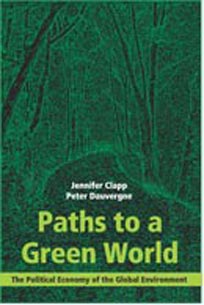 A4
A4

Hard-cover
•
2008
Pages: 352
ISBN: 8171885551
For Sale in South Asia Only
INR 895

This comprehensive and accessible text fills the need for a political economy view of global environmental politics, focusing on the ways key economic processes affect environmental outcomes. It examines the main actors and forces shaping global environmental management, particularly in the developing world. Moving beyond the usual academic emphasis on inter-national agreements and institutions, it strives to integrate debates within the real world of global policy and the academic world of theory.
The book maps out an original typology of four contrasting worldviews of environmental change—those of market liberals, institutionalists, bioenvironmentalists, and social greens— and uses these as a framework to examine the links between the global political economy and ecological change. This typology not only helps students understand and participate in debates about these worldviews but also provides a common language for students and instructors to discuss the issues across the social sciences. The book covers globalization and its consequences for the environment; the evolution of global discourse and global environmental governance; wealth, poverty, and consumption; the impact on the environment of global trade and trade agreements; transnational corporations and differential environmental standards; and the environmental effects of international financing, including multilateral lending and aid and bilateral and private finance. Brief, illustrative case studies appear throughout the text.
Jennifer Clapp is Associate Professor of Environmental and Resource Studies and Chair of the International Development Studies Program at Trent University, Ontario, Canada.
Peter Dauvergne is Canada Research Chair in Global Environmental Politics, Director of the Environment Program of the Liu Institute for Global Issues, and Associate Professor of Political Science at the University of British Columbia.